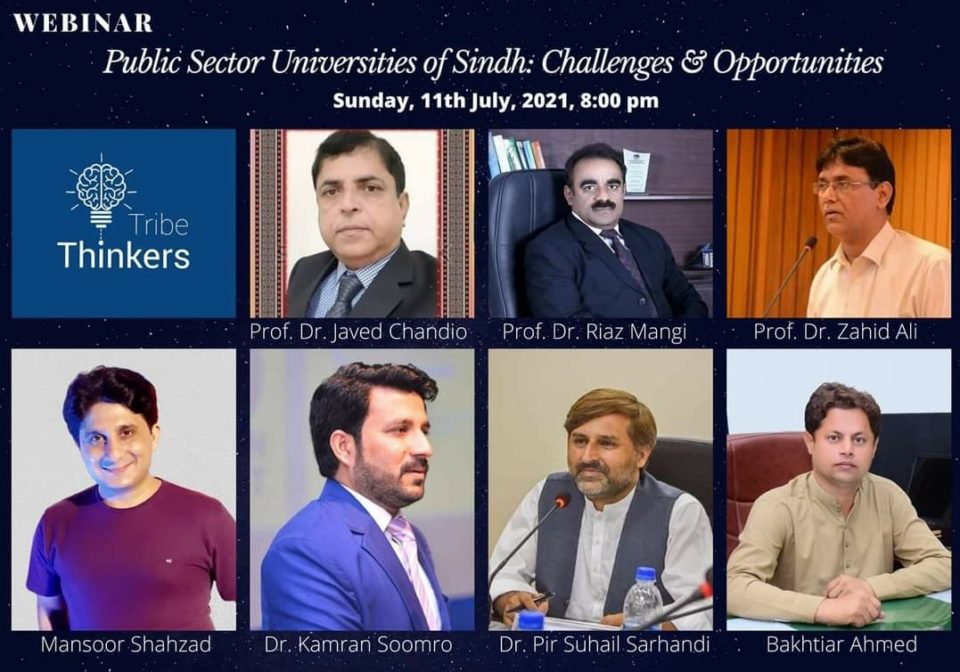By: Adeel Alvi
KHAIRPUR: Thinkers Tribe organized a webinar on the important topic, “Public Sector Universities of Sindh: Challenges & Opportunities” wherein academics from different universities of Sindh were invited to share their views on the given theme. Speakers included Prof. Dr. Zahid Ali Channar, Dean, Faculty of Social Sciences, SMI University Karachi, Dr. Riaz Ahmed Mangi, Professor Institute of Commerce and Management, FMS, SALU, Khairpur, Dr. Pir Suhail Sarhandi, Chairperson, Department of Linguistics and Human Sciences, Begum Nusrat Bhutto Women University Sukkur and Mr. Bakhtiar Ahmed, Additional Registrar Academics, Shaikh Ayaz University Shikarpur. While the session was moderated by Dr. Kamran Ahmed Soomro, Assistant Professor, Faculty of Management Sciences, SZABIST Karachi, & Co-founder of Thinkers Tribe.
In the webinar, participants discussed about burning issues of public sector universities and highlighted the major challenges faced by these universities in their struggle to achieve academic excellence and adoption of best practices as per international standards for sustainable development. They said some of the major challenges include lack of infrastructure, lack of funds for faculty and staff remuneration and development programs, lack of technological support for modern teaching and online classes, unavailability of initiatives for faculty development programs etc. The participants realized the need for collective efforts by all stakeholders including university leadership, staff, faculty, students, parents, and industry, in order to achieve sustainable change in the system and culture of these public sector universities. Comprehensive development plans were suggested to enhance the performance of these universities to face the competition and to deliver the best as per global standards. Besides, during the discussion, various opportunities and initiatives were highlighted as suggestions to improve current status of public sector universities and to overcome concurrent challenges. Webinar concluded with recommendations at three levels of the university stakeholders:
Administrative level: Financial management and control, resource management and utilization, employees’ performance evaluation, faculty and staff training, quality checks, technology adoption, no undue favor to unions & political wings, elimination of corruption by adopting transparency through technology.
Leadership level: Vision, faculty development initiatives, designing new programs and curriculum compatible with local market needs, meritocracy, change in organizational culture, designing and implementing policies for learning environment, industry linkages, no political interference, promoting sense of community services, building efficient ORIC, incubation and entrepreneurship centers.
Academic level: Modern pedagogy, classroom management, students’ engagement, research and publications, students’ career counseling, students’ personality development, adopting indigenous curriculum, designing best assessment tools, assigning industry specific projects.

